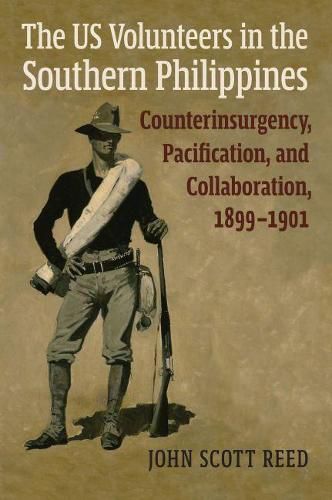Readings Newsletter
Become a Readings Member to make your shopping experience even easier.
Sign in or sign up for free!
You’re not far away from qualifying for FREE standard shipping within Australia
You’ve qualified for FREE standard shipping within Australia
The cart is loading…






In fighting the Philippine-American War, the United States counted heavily on twenty-five new regiments raised in the summer of 1899: the United States Volunteers (USVs). The USVs outnumbered regular regiments in eleven of eighteen military pacification districts, particularly through the southern archipelago, where they bore the brunt of field service, combat, and disease casualties until relieved in spring 1901 by a reconstituted Regular Army. The US Volunteers in the Southern Philippines offers the first full account of this historically unique 35,000-man force - and in the process describes how the USVs decisively contributed to the United States’ single most successful counterinsurgency campaign waged outside the Western Hemisphere.
A close examination of the military achievements, garrison life, and institutional characteristics of the US Volunteers reveals how the force effectively combined the best elements of the American regular and militia traditions during its brief existence - abetted by an Army medical system vastly improved since debilitating losses in Cuba and the United States during 1898. Countering recent readings of the pacification of the Philippines as a near-genocidal event, John Scott Reed uses court-martial records to argue for a high disciplinary and behavioral standard among the USVs - in garrison, in the field, and, most critically, in their interactions with Filipino villagers. This standard, his evidence suggests, was supported by a late-Victorian, reflexively patriotic sense of masculinity that motivated the Volunteers, along with a profound belief in the self-evident superiority of American institutions. He also draws on recent Filipino scholarship to clarify the role of landed and commercial elites in initially supporting the Philippine Revolution and later collaborating with the US occupation.
Bridging military history and post-colonial studies, Reed’s work provides a new and clearer understanding of the short-lived but highly effective US Volunteer force, and a new perspective on a critical moment in America’s military and colonial past.
$9.00 standard shipping within Australia
FREE standard shipping within Australia for orders over $100.00
Express & International shipping calculated at checkout
In fighting the Philippine-American War, the United States counted heavily on twenty-five new regiments raised in the summer of 1899: the United States Volunteers (USVs). The USVs outnumbered regular regiments in eleven of eighteen military pacification districts, particularly through the southern archipelago, where they bore the brunt of field service, combat, and disease casualties until relieved in spring 1901 by a reconstituted Regular Army. The US Volunteers in the Southern Philippines offers the first full account of this historically unique 35,000-man force - and in the process describes how the USVs decisively contributed to the United States’ single most successful counterinsurgency campaign waged outside the Western Hemisphere.
A close examination of the military achievements, garrison life, and institutional characteristics of the US Volunteers reveals how the force effectively combined the best elements of the American regular and militia traditions during its brief existence - abetted by an Army medical system vastly improved since debilitating losses in Cuba and the United States during 1898. Countering recent readings of the pacification of the Philippines as a near-genocidal event, John Scott Reed uses court-martial records to argue for a high disciplinary and behavioral standard among the USVs - in garrison, in the field, and, most critically, in their interactions with Filipino villagers. This standard, his evidence suggests, was supported by a late-Victorian, reflexively patriotic sense of masculinity that motivated the Volunteers, along with a profound belief in the self-evident superiority of American institutions. He also draws on recent Filipino scholarship to clarify the role of landed and commercial elites in initially supporting the Philippine Revolution and later collaborating with the US occupation.
Bridging military history and post-colonial studies, Reed’s work provides a new and clearer understanding of the short-lived but highly effective US Volunteer force, and a new perspective on a critical moment in America’s military and colonial past.